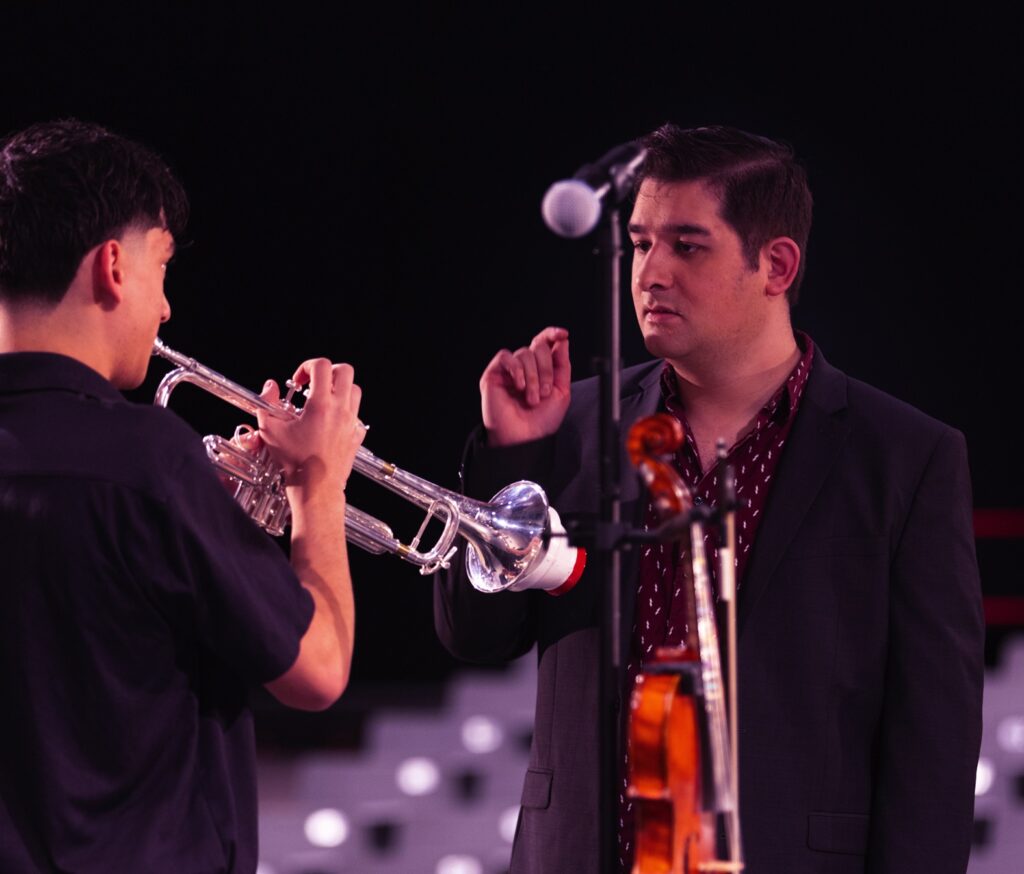Tagged Under:
Your Principal Probably Doesn’t Understand Your Job
Advocate for your program, your students and yourself, and show administrators the importance of music education.
“Can you send a couple kids to help with locker checks?”
That’s what our assistant principal asked — right in the middle of rehearsal. Clarinets were halfway through tuning. The concert was tomorrow, for goodness sake! I just stared at him for a second. Did he think this was a study hall? Did he not see 70 kids, in chairs, with instruments, ready to work?
It wasn’t malicious. It wasn’t even neglectful. It was just … uninformed.
That’s when it clicked: He really doesn’t get it.
It’s not just locker checks. It’s being left off school-wide announcements. Or being asked to “shorten your field time” when you’ve already booked the space. Or explaining — once again — that this competition is not a “field trip.” It’s the huge thing that we’ve been preparing for all semester.

You’re Not Being Ignored. You’re Being Misunderstood
I used to take it personally. When a dean walked past my room during rehearsal and didn’t even glance in. When I was left out of the Professional Learning Committee (PLC) meeting because “arts didn’t need to be there.” When a new staff member asked if I had any “free periods” because they saw me outside with the band.
I felt invisible.
Over time, I realized something: My admin didn’t see me because they didn’t know what to look for. To them, my job was concerts and parades. A few big events a year. Not the daily teaching, the emotional triage, the crisis texting with the bus company because one broke down three hours before call time.
They weren’t blowing me off. They just had no idea how much actually goes on in my music classroom.
Honestly, that’s fair. If I hadn’t lived this job for all these years, I wouldn’t understand it either. Even now when I try to explain what I do every day, I usually get a look that says, “Glad that’s not my job!” Because, again, they just don’t get it!

Start Small: Invite Them In
One of the first shifts I made was ditching the chip on my shoulder and just asking them to stop by. Not with a guilt trip. Not with any incentive.
I’d send a quick email like, “Hey! We’re running the full marching band opener today if you want to pop in — the kids are proud of it.” That’s it.
Sometimes they showed up, sometimes they didn’t. But the invite helped.
Eventually, I learned to plant little seeds. When a student organized an instrument petting zoo for elementary kids, I sent a photo. When we hosted a guest artist, I forwarded the schedule and said, “Would love to have you swing by.” One time, our counselor walked in on a rehearsal and said, “Wow, this is real teaching.”
Which … yes, it is.
Side note: I used to overthink this. I’d try to frame every invite like it was a press release (if you’ve met me in real life, you know that I can talk … a lot). I found that the more casual and authentic I made the message, the better it landed.
Don’t worry about looking polished. Worry about being visible. Write the email, press send — you’re done in a few seconds.

Document Your Wins (Quietly and Consistently)
This one took me way too long to figure out. I used to think, “If I just work hard and do good things, people will notice.” Guess what? They won’t. Not because they don’t care, but because everyone is doing a hundred things at once. Admin included.
So now I keep a running list — nothing fancy. Just a Google Doc with dates and bullet points:
- 10/3 — Led pep band at football game in the rain. Only two kids bailed. Victory.
- 11/6 — Concert had standing room only. Parent emailed: ‘I cried during the ballad.” (I did, too, but not for the same reason).
- 12/12 — Fixed the entire tuba section with one sectional and an unreasonable amount of Takis.
These are the things I forget about when I’m overwhelmed — but they matter. And when admin asks for an end-of-year reflection? I’m not scrambling. When I need to advocate for funds or justify a day off for a clinic? I have receipts.
This doesn’t need to be a PR campaign. It’s more like a survival kit for when you’re too tired to remember why you’re doing this.
Also, it’s incredibly validating on those “maybe-I-should-quit” days.

Set Boundaries Early (And Re-State Them Often)
The locker-check moment that I mentioned at the beginning of this article wasn’t the first time I was asked to loan students out. It started small: “Can I borrow a couple kids for a quick thing?” Then it became the norm. Suddenly, I was running an unpaid student temp agency.
At some point, I realized that If I didn’t protect my time, no one else would. So, now, I say things like:
- “We’re in performance prep mode, so I need all hands today. Can we check in next week?”
- “That student’s in the middle of a graded assessment. I can send them after class.”
- “This class is their team sport, their art class and their AP project all rolled into one. I need them here.”
Sometimes people get it. Sometimes they don’t. But I stopped apologizing for doing my actual job.
One year, a staff member jokingly called the band room “the land of no.” I took that as a compliment.
You’re not being difficult when you advocate for your students’ learning time. You’re being professional.
Also, random but important: If you don’t set these boundaries early, you will absolutely be the one they ask to cover lunch duty in May when everyone else is burned out.

You Might Be the Only One Explaining What You Do
One time I overheard a teacher say, “The band kids don’t have real finals, do they?”
That stung because our final that year involved a multi-day recording project, peer feedback and live performance. It may not be an online multiple-choice test with a bunch of data, but it was rigorous!
That moment reminded me: If I want people to understand the depth of what we do, I have to show them. So, I started being more vocal.
- I posted clips from final performances (with permission).
- I explained our rubric when I handed in grades.
- I invited teachers to sit in on small group projects.
Sometimes I’d drop lines like, “We’re in the middle of a unit on ensemble communication. It’s basically group dynamics with mouthpieces.”
Yes, it’s a little performative, but that’s the game. (After all, most jobs include a fair share of PR, and teaching is no exception.)
You don’t have to go full TEDTalk, but you do have to explain it — because no one else will. Otherwise, people assume it’s all marching and holiday concerts.
And when people assume that your work is easy or “fun,” they’re less likely to prioritize it. This part can be exhausting. If nobody explains it, your kids are the ones who will miss out — on time, space and stuff that actually helps. So, get used to explaining it — over and over again.

You’re Not Failing. You’re Just Unseen.
If you’re early in your career and feeling invisible, I want to say this clearly: It’s not because you’re bad at your job. It’s not because you’re not working hard enough. It’s because this job is odd and complex and emotionally draining — and most people don’t know what it looks like from the inside.
So, take a breath. Take notes. Say no when you need to. Invite them in when it feels right.
And when it’s one of those weeks — when the buses are late, the admin misses the concert and you’re reheating your dinner at 9:30 p.m. — remember that you’re building something they can’t always see.
But your kids see it — and that counts for a lot.















